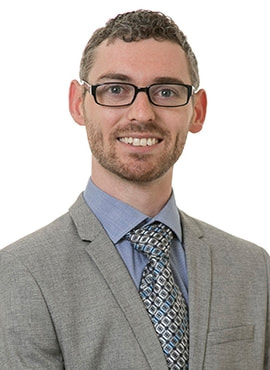|
Assistant Professor of Mathematics
at US Naval Academy perini [at] usna . edu He/Him/His LGBTQ+ |
I earned a PhD in Operations Research from Georgia Institute of Technology. I am currently an Assistant Professor at the US Naval Academy's Department of Mathematics. My research specializes on algorithmic and theoretical developments for multiobjective discrete optimization. My work in analytics has also contributed to public health, including epidemiological modeling, through simulation, data analysis, and data visualization. My recent work explores machine learning approaches for combinatorial optimization. See an illustrative overview of my research in the Research tab.
Beginning in 2017, I was supported by the National Science Foundation Graduate Fellowship Program. Thanks to this fellowship, much of my research has been collaborative with researchers in Germany and Australia. Check out my rockstar collaborators in the Collabs tab. As a member of the LGBTQ+ community, I add to a critically lacking dimension in STEM. In 2020, I was welcomed as a DEI Ambassador for INFORMS with an ongoing project titled We're Here. I am passionate about visibility and support within this intersection of career and identity. Please see my Diversity Statement below. See my CV and contact info. |
|
You are welcome here. I believe that modern day education--and opportunities to excel within--are privileges that are not shared equitably. The status quo of educational institutions must be countered by external and internal policies, including champions for equity first, then inclusion, and diversity will follow. As a White, male-presenting person, I acknowledge the many privileges that have enabled my present position and the responsibility to use my voice for supporting and empowering the voices of those less privileged. On the other hand, my identity as an LGBTQ+ individual has shaped my understanding of a disingenuous concept that is prominent in academia, in particular STEM fields: one’s identity (e.g., in terms of race, ethnicity, gender, sexuality, etc.) "does not or should not matter'" as long as they "do good research." To this notion, I counter: First, without inclusion and equity, many of our most promising researchers are never granted the opportunities for which they are more than qualified. Second, every researcher is at their best when they can be their authentic self and be welcomed for their full identity. My fight for diversifying the academy is to highlight and celebrate the diversity of gender and sexual identities, which more broadly informs my approach to academia.
As an actionable way to improve LGBTQ+ visibility in my field, I initiated an interview study with the 2021 INFORMS DEI Ambassador Program titled We’re Here: Interviews with LGBTQ+ Members of INFORMS. This compilation of personal narratives was motivated by my own inability to find LGBTQ+ mentorship. My aim is for a single document to embody that which many like me are seeking: advice from a fellow LGBTQ+ researchers. This primarily serves to collect advice from Queer academics to Queer academics; however, this study will also provide insights into Queer experiences for non-Queer audiences. While the study is ongoing, it has already been incredibly validating. I look forward to publicly sharing the results of 9+ interviews with the INFORMS community through media such as blog posts and a journal article. By consolidating and uplifting these underrepresented voices, this work can have a lasting impact on my field. In my day-to-day life, I use my teaching practices to highlight the value of LGBTQ+ visibility in STEM. Throughout my years of education, I never had an out LGBTQ+ professor. Sharing one’s LGBTQ+ identity in professional settings, especially in academia, is a highly personal choice to make. Because I feel comfortable presenting this identity, it is important to me that I am open with my students as a positive form of LGBTQ+ visibility. Towards this end, I establish a classroom environment that is inclusive and encourages self-expression. As part of their introductions, I encourage students to include their pronouns, which normalizes this practice as well as ensures that I respect each student’s identity. By openly sharing my part in the LGBT+ community, I let students know that they are welcome as they are. I believe that every professor has the responsibility--to their students, their peers, and their field--to act as a pump rather than a filter for the diversification of the next generation of researchers. Through the lens of my experiences and those of my interview participants, I often consider the privileges of my many "visible" identities, as well as the luck of having only one identity that distinguishes me from the majority of the academy. Understanding experiences of beyond my own requires me to practice critical self-reflection, empathy with personal stories, evaluating the limitations of my own story, humility when I am corrected, and search for diverse perspectives that expand my understanding of the human experience for the benefit of myself, my students, my collaborators, and my community. |

